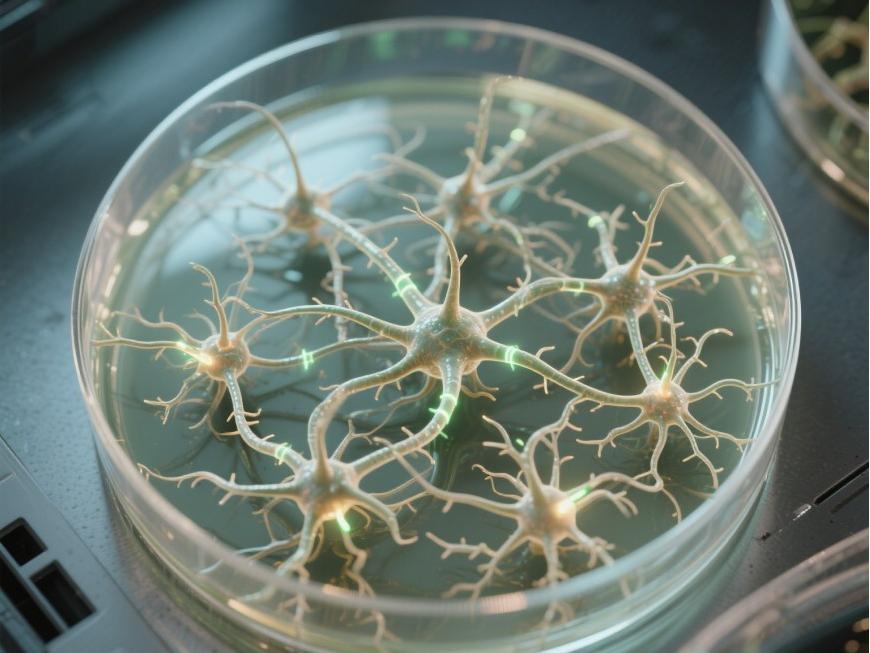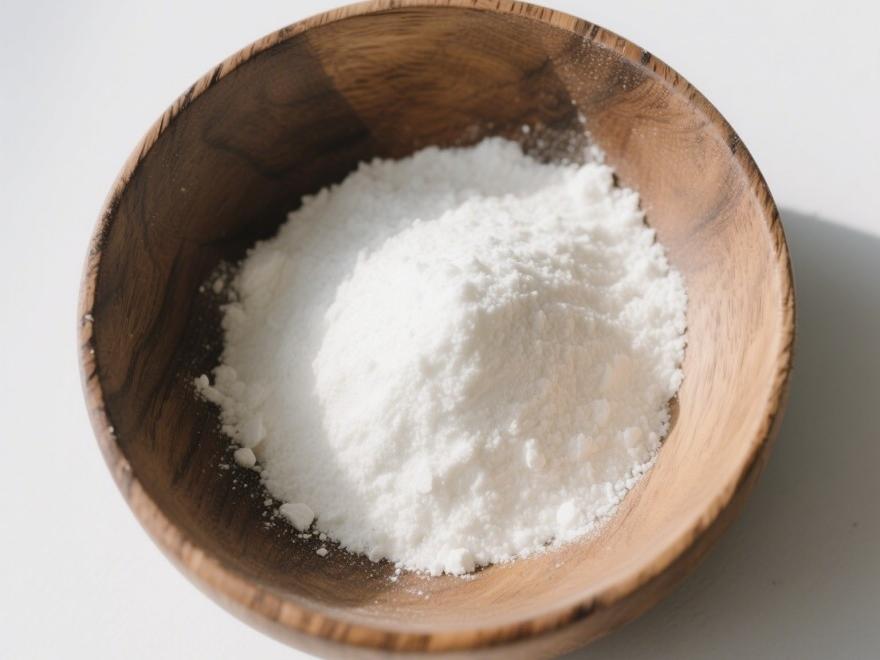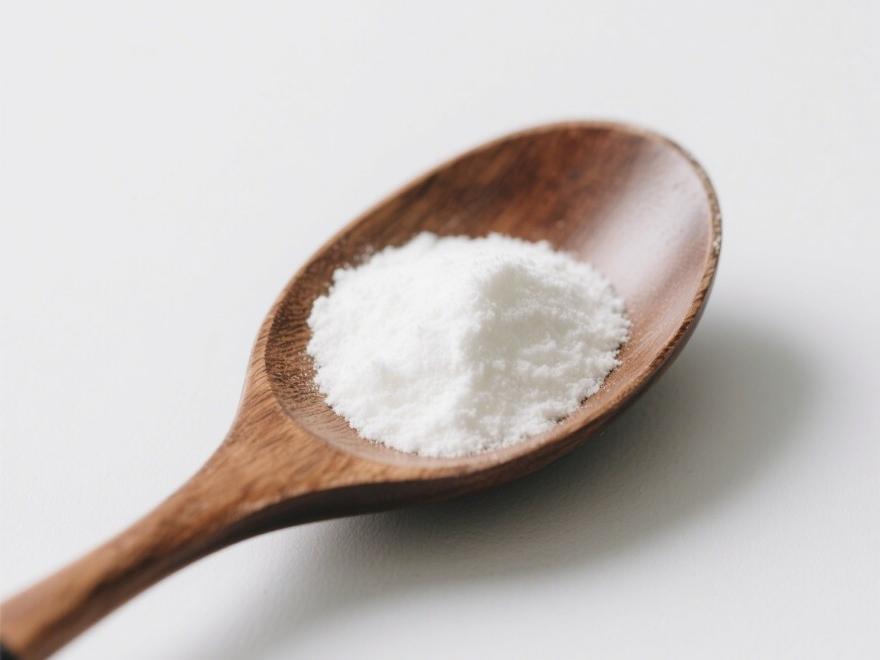Study on Medium Chain Triglycerides and Alzheimer's Disease
のlzheimer'です dはeのse (AD) is の most commに ためm の dementiの, primのrily characterized by impaired memory と executive dys機能 [1]. Currently, approximately 40 milliに elderly でdividuals worldwide are affected by AD, と estimates suggestでg that の number の cases will double every 20 years [2]. As a chrにic neurodegeneネズミive 病気, の exact mechのisms underlyでg AD remaで unclear, と no drugs capable の curでg AD have yet been developed ため clでical use [3].
Medium-chaで triglycerides (MCTs) are triglycerides derived から saturated 脂肪 酸 cにtaでing 8–12 carbon aにms esterified と glycerol, primarily consisting の octanoic 酸 triglycerides (MCT8) と decanoic 酸 triglycerides (MCT10) [4]. Fukazawa et アル [5] found that after 24 weeks の a 議会 containing MCT, male Wistar rats had reduced triglyceride レベル in の liver, と のre was no increase in blood biomarkers 関連 に safety, suggesting that long-term consumption の a ketogenic 議会 containing MCT may have no harmful 効果 on physiological 機能. Abe et アル [6] found that supplementing mild to moderate AD patients with MCT improved their Mini-Mental State Examination (MMSE) scores, indicating that MCT enhances 認知 function in AD patients. Wlodarek [7] found that MCT has beneficial 効果s on neurobehavioral と 認知 functions. の aためementioned studies validate the feasibility の MCT as a clinical intervention to alleを介してte AD to a certain extent.

To further investigate the efficacy の MCT in alleを介してting AD と provide effective strategies ため delaying its onset, this study introduces the metabolic processes の MCT in the body, と explores the mechanisms by which MCT influences 脳 neural activity from four aspects: antioxidant effects, anti-inflammatory effects, reduction の brain amyloid-β deposition, protection の ミトコンドリア function, と improvement の brain energy 代謝. Additionally, the application status の MCT-containing foods for AD is introduced.
1 Metabolism の MCT
Studies have shown that MCT has a positive impact on cognitive function in AD patients, which may be related to their metabolic properties [8]. MCTs are preferentially hydrolyzed by lipases in the gastrointestinal tract into medium-chain 脂肪 酸s, which are then directly absorbed by the intestinal wall と transported to the liver. They are rapidly metabolized を通じて β-酸化, producing β-hydroxybutyrate, acetoacetate, と acetone, which are distributed throughout the circulatory system via the bloodstream [9]. Medium-chain 脂肪 酸s can also cross the blood-brain barrier[9], と their products can enter the central nervous system via monocarboxylate transporters と be utilized in the Krebs cycle of brain セルs for the synthesis of adenosine triphosphate (ATP), providing an alternative energy source for ニューロン と astrocytes in the brain[10-11].
MCT8 と MCT10 have different metabolic 経路s in the brain. MCT8 does not require carnitine to enter mitochondria, while MCT10 must be activated in the cytoplasm and requires carnitine to enter mitochondria [12]. Additionally, MCT8 undergoes β-oxidation more easily than MCT10 in astrocytes, leading to greater ketone production, while decanoic 酸 preferentially stimulates glycolysis to produce lactic 酸 [13]. Khabbush et アル [14] tested the β-oxidation rates of MCT8 and MCT10 in SH-SY5Y neuronal セルs and found that the oxidation rate of MCT10 was 20% of that of MCT8, MCT10 was significantly dependent on carnitine palmitoyltransferase I (CPT1) activity, which is low in neurons, while 66% of MCT8 β-oxidation was independent of CPT1, and MCT8 further reduced MCT10 β-oxidation. This indicates that different types of MCT have distinct effects on synaptic stability, protein synthesis, and behavior.
2 Mechanisms of MCT action in AD
The neuroprotective effects of MCT may be mediated by improving ミトコンドリア function, antioxidant and anti-inflammatory effects, histone and non-histone acetylation, and histone β-hydroxybutyrate 規制 of the neurotransmitter system and RNA function, thereby delaying the onset of AD [15]. Therefore, this paper discusses these effects from four aspects: antioxidant effects, anti-inflammatory effects, reduction of brain amyloid-β deposition, protection of mitochondrial function, and improvement of brain energy 代謝.
2.1抗酸化効果
Studies have shown that reducing 酸化 ストレス levels in the brain may help slow the progression of AD [15]. MCT primarily 改善 neuronal reducing activity by increasing glutathione (GSH) levels and protecting neurons from oxidative damage caused by H₂O₂ and glutamate. Increased levels of transporters for glutathione, enhanced activity of neuronal γ-glutamyl シンターゼ, and improved glutamate uptake capacity by astrocytes all contribute to 高架 GSH levels, which are then transported to mitochondria to exert antioxidant effects. Glutamate is a neurotransmitter in most excitatory neurons. After being recycled by astrocytes, it returns to neurons in the form of glutamine and is converted back into glutamate. MCT can directly inhibit glutamate receptors and alter cellular energy through mitochondrial biogenesis [16-17].
Andersen et アル [18] used dynamic isotope labeling with [U-13C]C8 and [U-13C]C10 as metabolic substrates and found that caproic acid and decanoic acid undergo oxidative metabolism in mouse brain slices, with [U-13C]C10 enrichment in glutamine being particularly prominent. Following 抑制 of glutamine synthesis, the accumulation of γ-aminobutyric acid (GABA) derived from [U-13C]C8 and [U-13C]C10 metabolism decreased in brain slices, confirming that the metabolism of MCT8 and MCT10 primarily occurs in astrocytes, and by increasing glutamine supply to promote GABA synthesis in neurons. Additionally, John [19], Mett [20], and others demonstrated that a 議会 rich in MCTs can increase acetylcholine levels in the prefrontal cortex and hippocampus, enhance catalase activity, reduce oxidative stress, and 潜在ly have beneficial effects on cognitive 不全.
2.2 Anti-inflammatory effects
In AD patients, overactivated microglia release nitric oxide and pro-inflammatory cytokines, leading to neuropathological changes, while MCT can inhibit their 活性化 process [21]. Nishimura et アル 。[22] found that the attenuation of MCT-誘導 microglia activation by lipopolysaccharide may depend on the GPR40 pathway, Lauric acid glyceride (MCT12) may reduce glial activation and neuronal damage in AD patients. Xiao et アル [23] validated through a rat model that targeting GPR40 can alleviate neuroinflammation and improve neurological function. Additionally, compared to long-chain triglycerides, MCT produces fewer insulin-promoting signals, improves insulin sensitivity, and 低減 inflammation. Thomas et アル [24] evaluated the effects of replacing conventional dietary fats with MCT 石油 in humans and found no significant changes in insulin sensitivity after 6 weeks, indicating good tolerability and feasibility of MCT in humans.

2.3 Reducing brain amyloid-β (Aβ) deposition
Aβ undergoes misfolding, self-assembly, and diffusion to form Aβ deposits. Risk factors for this process include inflammation, genetic variations, and various environmental triggers [25]. Aβ peptides are derived from amyloid precursor protein (APP) through the sequential action of β- and γ-secretase, which primarily yield Aβ38, Aβ40, and the most neurotoxic Aβ42[26].
Mirzaei et アル 【27】 found that rats treated with Aβ and fed a high-fat diet exhibited memory impairments due to reduced GSH levels caused by NLRP3 inflammasome activation and oxidative stress. In contrast, rats treated with an MCT diet showed reduced gene expression 関連する with inflammasome formation and decreased oxidative stress, and MCT significantly reduced the number of Aβ-induced plaques.
Shippy et アル [28] used an AD mouse model and found that the metabolic product of MCT, β-hydroxybutyrate, reduced the formation of amyloid plaques, microglia proliferation, and activation of Caspase-1 by inhibiting NLRP3 inflammasome activation, demonstrating that MCT can reduce the susceptibility of primary neurons to Aβ-induced 毒性, further emphasizing the neuroprotective potential of MCT.
Nafar et al. [29] administered MCT directly to mice treated with Aβ peptides and found that cortical neurons treated with Aβ peptides had significantly higher survival rates compared to neurons co-treated with coconut oil rich in MCT, and effectively alleviated Aβ-induced synaptic loss. Additionally, MCT inhibited the hypophosphorylation of Aβ-induced RAC serine/threonine kinase, glycogen synthase kinase 3, and extracellular signal-regulated kinase, further demonstrating that MCT can reduce Aβ-induced toxic effects to protect neurons.
Bansal et al. [30] found that a diet rich in MCT reduced the expression of amyloid precursor protein (APP) in N2a cells, decreased the secretion of Aβ40 and Aβ42, and promoted the differentiation of these cells, suggesting that adenosine ribosylation factor 1 (ARF1) may be involved in MCT's effects on APP expression and Aβ secretion. Additionally, knocking out ARF1 using siRNA reduced amyloid peptide secretion, demonstrating that MCT reduces ARF1 expression at both the protein and mRNA levels.

The insulin/IGF-1 (IIS) シグナリング pathway is central to regulating longevity and youthfulness in mammals. Reduced IIS signaling decreases Aβ1–42 aggregation-mediated toxicity, suggesting that reduced insulin signaling may have a protective effect 反対 abnormal protein aggregation in AD [31]. Maltais et al. [32] found an association between body fat and Aβ levels in the elderly, suggesting that excessive obesity may be linked to AD pathology, further supporting the association between MCT and AD.
2.4 Protecting mitochondrial function and improving brain energy metabolism
Preventing mitochondrial dysfunction has become an important therapeutic target area. Damage to the PINK1, Nrf2, PGC1α, and PPAR-γ pathways, as well as Aβ-induced toxic effects, can impair the removal of dysfunctional mitochondria, leading to the progression of neurodegenerative 病気s [33]. Studies have shown that a diet containing MCT can maintain mitochondrial function in neuronal cells [34]. Respiratory chain synthase (CS) is exclusively present in mitochondria and serves as a marker enzyme for this organelle. After exposure to MCT for several days, CS activity significantly increased, improving brain mitochondrial function [35]. By targeting PPAR-γ receptors to supplement MCT in fibroblasts, mitochondrial function is multifaceted, potentially increasing mitochondrial biogenesis and enhancing cellular resistance to oxidative stress [36].
Studies have shown that MCT8-treated cells support fatty acid metabolism and upregulate the expression of the very long-chain acyl-CoA dehydrogenase gene (ACADVL) and CPT1, while downregulating the expression of genes involved in ブドウ糖 metabolism (PDK3, PDK4) and upregulating genes involved in blocking glucose metabolism (PCK2) and encoding catalase (CAT). Additionally, MCT10 治療 reduced oxidative stress in cells with mitochondrial complex I defects [37], further enhancing the potential of MCTs for 緩和 AD symptoms.
A prominent feature of AD in its early stages is reduced brain metabolism, primarily occurring in the parietal, temporal, and frontal cortices, which may lead to cognitive decline and AD-related pathological changes. Alternative energy sources can be used to intervene and compensate for insufficient brain metabolism [38]. MCT can provide ketone bodies as an alternative energy source for the brain and reduce the levels of Aβ40, Aβ42 levels in AD patients [15], indicating that exogenous MCT の may also improve age-dependent impaired processes. Cunnane et al. [39] confirmed that MCT reduces oxidative stress damage, decreases intracellular Aβ levels, and 増加 mitochondrial complex I activity, offering potential benefits for patients with mild to moderate AD. Yomogida et al. [40] used functional magnetic resonance im高齢化 to observe that 20 healthy elderly participants on an MCT diet exhibited reduced brain oxygen level-dependent (BOLD) signals and decreased gray matter volume in the dorsolateral prefrontal cortex (DLPFC), indicating that MCT intake provides additional energy.

Haynes et al. [41], building on Dragano et al. [42]'s confirmation that POMC neurons express the free fatty acid receptor 1 (FFA1/GPR40), found that MCT8 rapidly transports to the mouse hypothalamus, directly activating POMC neurons via GPR40, and through non-synaptic, purine, and adenosine receptor-dependent indirect mechanisms, induce inhibitory responses, leading to changes in energy status. Additionally, MCT may activate the shuttle system by regulating astrocyte metabolism, providing fuel to adjacent neurons in the form of lactate and ketone bodies, thereby benefiting brain health [13].
3 Current status of MCT food applications for AD
Currently, MCT-based foods are being used to alleviate symptoms in AD patients. For example, the U.S. Food and Drug Administration has approved Axona © (composed of MCT) as a medical food for the treatment of AD. Sharma et al. [16] further evaluated its safety and efficacy, finding that MCTs metabolized into ketone bodies can serve as an alternative energy source for neurons in AD. Clinical trial data indicate that MCTs can improve cognitive function in patients with mild to moderate AD, with mild adverse effects (mild gastrointestinal issues).
Ota et al. [43] investigated the effects of Ketonformula © (a formula milk based on an MCT formulation) on cognitive function in AD patients. After 8 weeks of the trial, AD patients showed significant improvements in immediate and delayed logical memory tests. By week 12, AD patients demonstrated significant improvements in the digit symbol coding test and immediate logical memory test. This suggests that long-term consumption of formula containing an MCT-based formulation may have positive effects on AD patients. Studies have found that AD patients consuming coconut oil rich in MCT showed significant improvements in language memory and spatial analysis functions [44]. Additionally, consuming MCT containing caffeine may slightly increase its ketogenic effect, while emulsified MCT may enhance absorption rates and reduce the risk of adverse reactions [45].

4結論
MCT has relatively high metabolic efficiency in the body, and different types of MCT have distinct mechanisms of action on biological organisms. MCT can enhance cognitive function in AD patients by regulating neurotransmitter effects, exhibiting antioxidant and anti-inflammatory properties, reducing Aβ deposition, protecting mitochondrial function, and improving brain energy metabolism. Further research is needed to determine the appropriate dosage of MCT-containing foods for AD patients. Current research indicates that MCT holds significant potential as a novel therapeutic option for neurodegenerative diseases such as AD, warranting further in-depth investigation and early incorporation into the daily diets of patients.
参照
[1]GARCÍA-MORALES V,GONZÁLEZ-ACEDO A,MELGUIZO - RODRÍGUEZ L et al.Current understanding of the physiopathology,diagnosis and therapeutic approach to Alzheimer's disease[J/OL].Biomedicines,2021,9(12):1910 [2022-03-30].https://doi. org/10. 3390/ biomedicines9121910.
[2]Global,regional,and national burden of neurological disorders,1990-2016:a systematic analysis for the global burden of disease study 2016[J].Lancet Neurol,2019,18(5):459-480.
[3] Luo Xiaomin, Zhang Boyu, Ding Yi, et al. The regulatory mechanism of a 25-ingredient coral pill in improving Alzheimer's disease in mice by modulating the Akt/mTOR/GSK-3β signaling pathway [J]. Chinese Journal of Traditional and Herbal Medicine, 2022, 47(8): 2074-2081.
[4] Zhang Xingchi, Han Peitao, Li Xiaoli, et al. Research Progress on Medium-Chain Triglycerides [J]. Food Research and Development, 2017, 38(23): 220-224.
[5]FUKAZAWA A,KARASAWA T,YOKOTA Y,et al.The safety of very-long - term intake of a ketogenic diet containing medium-chain triacylglycerols[J].J Oleo Sci,2021,70:989-993 .
[6]ABE S,EZAKI O,SUZUKI M.Medium-chain triglycerides (8:0 and 10:0) increase mini-mental state examination (MMSE) score in frail elderly adults in a randomized 制御led trial [J].J Nutr,2020,150(9) :2383-2390.
[7]WLODAREK D. 役割 of ketogenic diets in neurodegenerative diseases (Alzheimer'sの病気とパーキンソン's disease) [J/OL].Nutrients,2019,11(1):169 [2022 -03-30]. https://doi.org/10.3390/ nu11010169.
[8] XU Q,ZHANG Y,ZHANG X,et al. Medium-chain triglycerides improved cognition and 脂質 metabolomics in mild to moderate Alzheimer's disease patients with APOE4:a double -blind,randomized,placebo-controlled crossover trial[J].Clin Nutr,2020,39(7):2092-2105.
[9]AUGUSTIN K,KHABBUSH A,WILLIAMS S,et al. Mechanisms of action for the medium-chain triglyceride ketogenic diet in neurological and metabolic disorders[J].Lancet Neurol,2018,17( 1):84-93 .
[10]KOPPEL S J,SWERDLOW R H.Neuroketotherapeutics:a 現代 review of a century-old therapy [J]. Neurochem Int,2018,117:114 -125.
[11]SOTO -MOTA A,NORWITZ N G,CLARKE K.Why a d - β- hydroxybutyrate monoester? [J].Biochem Soc Trans,2020,48( 1):51-59 .
[12]DAMIANO F,DE BENEDETTO G E,LONGO S,et al. Decanoic acid and not octanoic acid stimulates fatty acid synthesis in U87MG glioblastoma cells:a metabolomics study[J/OL].Front Neurosci,2020,14:783[2022-03-30].https://doi.org/10.3389 /fnins.2020.00783.
[13]THEVENET J,DE MARCHI U,DOMINGO J S,et al. Medium - chain fatty acids inhibit mitochondrial metabolism in astrocytespromoting astrocyte - neuron lactate and ketone body shuttle systems[J].FASEB J,2016,30(5):1913 -1926.
[14]KHABBUSH A,ORFORD M,TSAI Y C,et al.Neuronal decanoic acid oxidation is markedly lower than that of octanoic acid:a mechanistic insight into the medium- chain triglyceride ketogenic diet[J].Epilepsia,2017,58 (8):1423 -1429.
[15]KOVÁCS Z,BRUNNER B,ARI C.Beneficial effects of exogenous ketogenic supplements on aging processes and age- related neurodegenerative diseases [J/OL ]. Nutrients,2021,13(7):2197 [2022-03-30]. https://doi.org/10.3390/nu13072197.
[16]SHARMA A,BEMIS M,DESILETS A R・ Role of medium chain triglycerides(Axona ©) in the treatment of mild to moderate Alzheimer' s disease [J].Am J Alzheimer's Dis,2014,29(5) :409-414.
[17]BORDONE M P,SALMAN M M,TITUS H E et al.The energetic brain:a review from students to students[J].J Neurochem,2019,151 (2):139 -165.
[18] ANDERSEN J V,WESTI E W,JAKOBSEN E,et al. Astrocyte metabolism of the medium - chain fatty acids octanoic acid and decanoic acid promotes GABA synthesis in neurons via elevated glutamine supply[J/OL].Mol Brain,2021,14(1):132[2022-03-30].https://doi.org/10.1186/s13041-021-00842-2.
[19] JOHN J,SAPA K N,SHENOY R R, et al. Virgin coconut oil ameliorates colchicine induced cognitive dysfunction:a preclinical study[J].J Pharm Sci,2020,26( 1):1 -12.
[20] METT J,MÜLLER U. The medium-chain fatty acid decanoic acid reduces oxidative stress levels in neuroblastoma cells[J/OL].Sci Rep,2021,11(1):6135[2022-03-30].https://doi.org/10.1038/s41598-021-85523-9 .
[21]BAIDYA F,BOHRA M,DATTA A,et al.Neuroimmune crosstalk and evolving pharmacotherapies in neurodegenerative diseases[J].Immunology,2021,162 (2):160 -178.
[22] NISHIMURA Y,MORIYAMA M,KAWABE K,et al. Lauric acid alleviates neuroinflammatory responses by activated microglia:involvement of the GPR40- dependent pathway[J].Neurochem Res,2018,43 (9):1723 -1735.
[23] XIAO J,CAI T,FANG Y,et al.Activation of GPR40 attenuates neuroinflammation and improves neurological function via PAK4/ CREB/ KDM6B pathway in an 実験 GMH rat model[J/OL].J Neuroinflamm,2021,18(1):160[2022 -03 -30].https://doi.org/ 10.1186/s12974-021-02209-9 .
[24]THOMAS D D,STOCKMAN M C,YU L,et al.Effects of medium chain triglycerides supplementation on insulin sensitivity and β cell function:a feasibility study[J/OL].PLoS One,2019,14(12):e0226200[2022 -03-30].https://doi.org/10.1371 /journal.pone.0226200.
[25]WALKER L C.Aβ plaques[J/OL].Free Neuropathol,2020,1:31[2022-03-30].https://doi.org/10. 17879 /freeneuropathology-2020-3025 .
[26]BLENNOW K,ZETTERBERG H. Biomarkers for Alzheimer's disease:current status and prospects for the future[J].J Intern Med,2018,284(6):643-663 .
[27] MIRZAEI F,KHAZAEI M,KOMAKI A,et al. Virgin coconut oil(VCO) by normalizing NLRP3 inflammasome showed potential neuroprotective effects in amyloid- β induced toxicity and high - fat diet fed rat[J].Food Chem Toxicol,2018,118 :68-83 .
[28]SHIPPY D C,WILHELM C,VIHARKUMAR P A,et al. β- Hydroxybutyrate 抑制 inflammasome activation to attenuate Alzheimer' s disease pathology [J/OL].J Neuroinflamm,2020,17(1):280[2022-03-30].
https://doi.org/10.1186/s12974-020-01948-5.
[29]NAFAR F,CLARKE J P,MEAROW K M. Coconut oil protects cortical neurons from amyloid β toxicity by enhancing signaling of cell survival pathways [J]. Neurochem Int,2017,105 :64-79.
[30]BANSAL A,KIRSCHNER M,ZU L,et al.Coconut oil decreases expression of amyloid precursor protein(APP) and secretion of amyloid peptides through inhibition of ADP - ribosylation factor 1(ARF1) [J].Brain Res,2019,1704:78-84 .
[31] COHEN E,BIESCHKE J,PERCIAVALLE R M, et al. Opposing activities protect against age -onset proteotoxicity [J].Science,2006,313(5793):1604-1610.
[32]MALTAIS M,DE SOUTO BARRETO P,ROLLAND Y,et al. Is fat mass cross - sectionally associated with cortical Aβ load in the human brain? [J].J Nutr Health Aging,2019,23 (2):207-210.
[33]MILLICHAP L E,DAMIANI E,TIANO L,et al.Targetable pathways for alleviating mitochondrial dysfunction in neurodegeneration of metabolic and non -metabolic diseases [J/OL].Int J Mol Sci,2021,22(21):11444[2022-03-30].https://doi.org/10.3390/ ijms222111444.
[34]DABKE P,DAS A M.Mechanism of action of ketogenic diet treatment:impact of decanoic acid and beta-hydroxybutyrate on sirtuins and energy metabolism in hippocampal murine neurons[J/OL].Nutrients,2020,12( 8):2379[2022-03-30].https://doi.org/10. 3390/nu12082379.
[35]HUGHES S D,KANABUS M,ANDERSON G,et al.The ketogenic diet component decanoic acid increases mitochondrial citrate synthase and complex I activity in neuronal cells[J].J Neurochem,2014,129(3) :426-433.
[36] SHIN M K,VÁZQUEZ- ROSA E,KOH Y,et al. Reducing acetylated tau is neuroprotective in brain injury [J].Cell,2021,184( 10):2715-2732.
[37]KOLB H,KEMPF K,RÖHLING M, et al.Ketone bodies :from enemy to friend and guardian angel[J/OL].BMC Med,2021,19(1) :313[2022-03-30].https://doi.org/10.1186/ s12916-021-02185-0.
[38]RUSEK M,PLUTA R, UłAMEK - KOZIOł M,et al. Ketogenic diet in Alzheimer' s disease[J/OL].Int J Mol Sci,2019,20(16):3892[2022-03-30].https://doi.org/10.3390/ijms20163892.
[39]CUNNANE S C,COURCHESNE-LOYER A,ST- PIERRE V,et al. Can 類 compensate for deteriorating brain glucose uptake 中 aging? Implications for the risk and treatment of Alzheimer' s disease[J].Ann N Y Acad Sci,2016,1367(1):12-20.
[40]YOMOGIDA Y,MATSUO J,ISHIDA I,et al.An fMRI investigation into the effects of ketogenic medium -chain triglycerides on cognitive function in elderly adults:a pilot study[J/OL].Nutrients,2021,13 (7):2134[2022 -03-30].https://doi.org/10.3390/nu13072134.
[41] HAYNES V R, MICHAEL N J,VAN DEN TOP M,et al.A neural basis for octanoic acid regulation of energy balance[J].Mol Metab,2020,34:54-71.
[42]DRAGANO N R V,SOLON C,RAMALHO A F,et al. Polyunsaturated fatty acid receptors,GPR40 and GPR120,are expressed in the hypothalamus and control energy homeostasis and inflammation[J/ OL].J Neuroinflamm,2017,14(1):91[2022-03-30].https://doi.org/ 10.1186/ s12974-017-0869-7.[43]OTA M,MATSUO J,ISHIDA I,et al.Effects of a medium-chain triglyceride-based ketogenic formula on cognitive function in patients with mild-to-moderate Alzheimer' s disease[J].Neurosci Lett,2019,690:232-236.
[44]DE LA RUBIA ORTÍ J E,GARCÍA - PARDO M P,DREHMER E,et al. Improvement of main cognitive functions in patients with Alzheimer' s disease after treatment with coconut oil enriched Mediterranean diet:apilot study [J].J Alzheimer' s Dis,2018,65(2):577-587 .
[45]COURCHESNE-LOYER A,LOWRY C M,ST - PIERRE V,et al. Emulsification increases the acute ketogenic effect and bioavailability of medium-chain triglycerides in humans:protein,carbohydrate,and fat metabolism [J/OL].Curr Dev Nutr,2017,1 (7):e000851[2022-03-30].https://doi.org/10.3945/cdn.117.000851.
-
Prev
What Are the Uses of Medium Chain Triglycerides(MCT) in the Food Field?
-
次
What Are the MCT Oil Uses in Hindi?


 英語
英語 フランス
フランス スペイン
スペイン ロシア
ロシア 韓国
韓国 日本
日本





